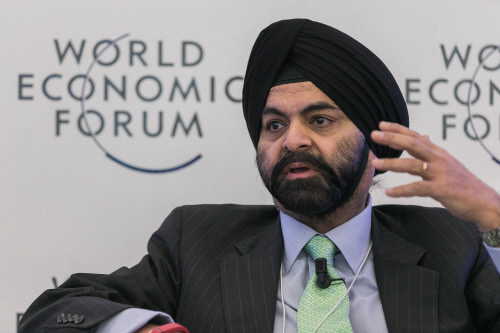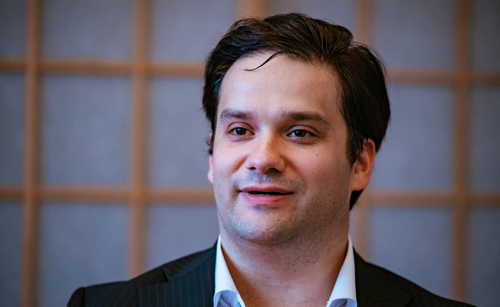Ajay Banga, who has been the CEO and president of Mastercard since 2009, told the Financial Times his attitude towards Libra deteriorated as project members proposed linking what was supposed to be a globally inclusive currency to a proprietary digital wallet, Calibra.
Mastercard’s CEO says the firm pulled out of the Facebook-led Libra project after developing concerns over its business model and compliance.
“It went from this altruistic idea into their own wallet. I’m like: ‘this doesn’t sound right,’» said Banga.
He said financial inclusion would mean a government is able to pay citizens in a certain currency, which they must be able to understand how to use and must be usable in day-to-day transactions for items like food.
«If you get paid in Libra coin . . . which go into Calibras, which go back into pounds to buy rice, I don’t understand how that works,» he said.
A lack of a clear business model for Libra raised another red flag for Mastercard. Banga said there were no obvious means for the Libra Association to become profitable or make money from its users. «When you don’t understand how money gets made, it gets made in ways you don’t like,» he said.
Banga also had concerns when association members would also not firmly commit to know-your-customer (KYC), anti-money laundering (AML) controls or data management controls.

Mastercard left the Libra project alongside its main competitor Visa back in October. Although Mastercard did not say at the time why it had decided to leave, a Visa spokesperson said the company had pulled out because the project had not been able to «satisfy all requisite regulatory expectations.»
Out of the 28 founding members of Libra, eight have left. British telecom conglomerate Vodafone was the last to leave in January when it decided to focus on its own digital payments service.
Mastercard has adopted a very cautious approach to distributed ledger technology. Although it has sponsored several initiatives that leverage blockchain – most recently a cross-border payments platform together with R3 – the company has a history of skepticism around cryptocurrencies.
Matthew Driver, Mastercard’s president for South-East Asia, said way back in 2014 that bitcoin and other cryptocurrencies did not have a clearly defined purpose and could not be trusted as a payment method. In a lecture series in July 2018, Banga described cryptocurrencies as «junk» and argued that they should not be considered as a medium of exchange.
Mark Karpeles Accuses Plaintiff in Mt. Gox Lawsuit of Attempting to ‘Thwart’ Court
The former CEO of Mt. Gox has claimed the plaintiff holding him liable for losses incurred after the exchange collapsed breached precedent by changing the claims in his complaint.

In a motion filed with the federal court of the Northern District of Illinois on Monday, Mark Karpeles claims Gregory Greene, who first sued in February 2014, changed the underlying basis for his claim in an attempt to «thwart» a motion calling for summary judgment.
Karpeles says Greene – who filed his initial complaint against Karpeles and Mt. Gox the day the exchange declared bankruptcy – violated court precedent by bringing a «host of new factual allegations» not alleged in the original class action complaint.
«Mr. Greene doomed his fraud claim by directly contradicting the underlying allegations in his Complaint of the purported fraud or deception during discovery,» reads the filing. «His addition of new allegations of fraud in response to a motion to summary judgment violates Seventh Circuit precedent.»
The filing claims Greene changed his claim to include allegations from other complainants that signed up to the exchange on the basis of Mt. Gox’s Terms of Use, which assured users the exchange had enough cash and bitcoin (BTC) to cover users’ deposits.
Although Greene argued he has always said this was part of his complaint, Karpeles argued in the filing that this was «impossible, as Greene’s creation of an account and making a deposit on the Mt. Gox Exchange preceded the existence of the Terms of Use by at least more than two weeks.»
Karpeles has accused Greene of attempting to change his claim so it could stand up to summary judgment – a motion allowing a presiding judge to rule on a case before it goes to trial and usually granted in cases where the outcome is considered a foregone conclusion.
Greene’s original complaint included three claims: the fraud claim, as well as since-dismissed counts of negligence and conversion. Some original allegations, like a purported statement on the Mt. Gox website claiming the exchange was useful as a safe place to store bitcoin, were renounced at the original deposition.
Last March, a judge refused a motion by Karpeles to stay the U.S. case. In a separate case brought forward in Japan, Karpeles was cleared of charges of embezzlement and breach of trust but found guilty of manipulating exchange data.


